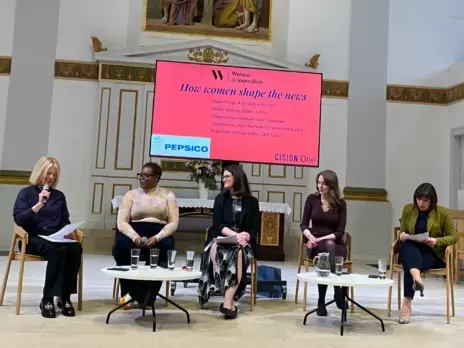
Justice secretary Kenneth Clarke yesterday told MPs he saw no case for introducing a specific privacy law to curb the activities of the press in the wake of the phone-hacking affair.
Giving evidence to the joint parliamentary Committee on Privacy and Injunctions Clarke said: ‘I don’t think at the moment we are very clear what a statute would say.
“No one has persuaded me that we really quite know what we were introducing as a Government if we introduced a privacy law. I couldn’t draft a law myself that I thought would be much use and I therefore don’t see the case for one.”
Clarke acknowledged there were problems in enforcing the law as it related to such matters as court injunctions on the internet – an issue raised by some newspaper editors.
He suggested that one solution was to make the “providers” who provided the platforms for the information legally responsible.
“It moves so quickly that one keeps having to examine what the responsibilities of the providers of the various platforms are, as opposed to the individuals who put things on those platforms. I do think we have to keep trying to keep up to speed with that,” he said.
Hunt: Nobody wants statutory regulation of the press
Culture Secretary Jeremy Hunt said he believed there was need for more effective enforcement of the existing Editors’ Code of Practice rather than statutory regulation of the media.
“I think that it is clear that nobody wants statutory regulation of the press,” he said.
“If Parliament is not going to impose a blueprint then we are very much looking for the industry to come up with a structure that gives us confidence that decisions about breaches of the code will be made independently, fairly and impartially and that there is proper, credible, sanction-making power.”
But he said there must be a way to ensure everyone took part and added that he was “completely open-minded” about whether some sort of financial penalty should be imposed on those newspapers who fail to sign up to the new body.
“We would like to continue with a light-touch approach but it does have to command the confidence of the public after a very, very bad period,” he said.
“The reason that the Prime Minister and I have hesitated to say that we want to keep self-regulation is because self-regulation is very often characterised as something which is very similar to the current system and clearly some very significant failings have emerged on that.”
Hunt said independent regulation was “not statutory regulation, it’s most certainly not statutory regulation of content by politicians, which I think everyone is agreed would be completely the wrong direction to go”.
“I’m quite happy to say my preferred solution would be industry-led independent regulation but it must have the confidence of the public,” he said.
“And to have the confidence of the public that means that when there is a question over whether the editors’ code has been breached or not, the decision needs to be made by a body which is sufficiently independent of both the editors and proprietors, as well as of politicians and ministers.
“It needs to be a body that has effective sanction-making power such that the press really don’t want to breach those regulations.
“It needs to be a body that by whatever means everyone is a part of.
“It needs to be a body that is properly financed.
“There are a number of requirements but I think it’s entirely possible for the industry to come forward with a way of meeting all those issues.”
Hunt added that the industry may also want “a level of statutory under-pinning for this, as our way, for example, of making sure everyone is part of it”.
“It may be that they say they would like a sort of financial penalty as a way of making sure everyone takes part.”
One suggestion has been that only those signing up to the new body would be officially classed as newspapers and able to avoid VAT on sales.
“We are completely open-minded about that but our preference is absolutely not for state regulation of content,” he said.
Email pged@pressgazette.co.uk to point out mistakes, provide story tips or send in a letter for publication on our "Letters Page" blog






